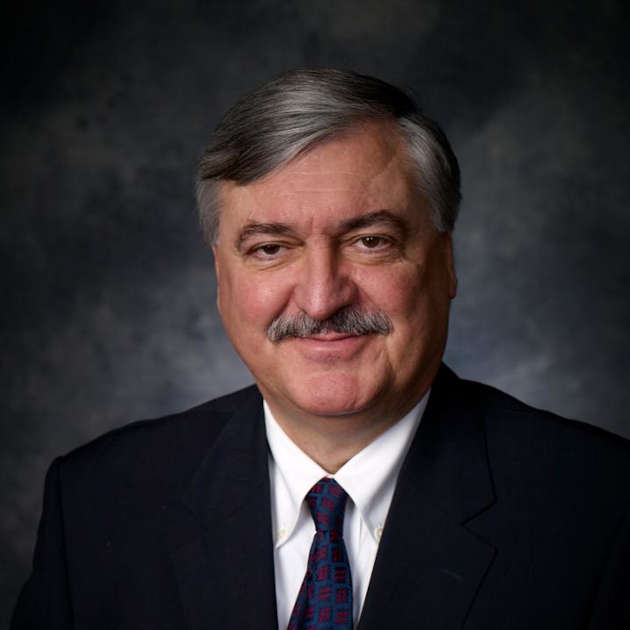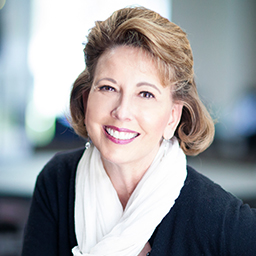
“We decided not to hire another senior associate dean,” Pirkul said. “In some sense, her jobs were dissipated among the other senior leaders at JSOM.”
Dr. Varghese Jacob, long-time Lars Magnus Ericsson Chair and vice dean at the Jindal School, assumed some of Powell’s duties. Two key promotions — Dr. Mark Thouin, who was recently promoted to associate dean for graduate programs; and Dr. Gaurav Shekhar, MS’16, MS’23, PhD’24, who was recently promoted to senior assistant dean for graduate programs and graduate student experience — also helped ensure that the Jindal School’s graduate programs are well prepared for the future.
“My management philosophy is that you take a look at the talent that you have, and you deploy it the best way you can,” Pirkul said.
Pirkul said that he had created the senior associate dean position because Powell had, over time, grown into a role that was above the associate dean level, and also so that she could carry additional influence. With the new configuration, Pirkul expects that the students will continue to be served well and will not see a drop in the level of attention paid to them or the services provided to them over the years.

Thouin was selected for his new role in part, Pirkul said, because he remains calm under pressure. He had done such a good job directing the master’s in information technology and management program that Pirkul sees him as someone who has the experience and thoughtfulness to guide and mentor the graduate program directors.
“Mark will show them how to provide the right kind of service to their students and successfully grow their programs,” he said. Thouin, who worked closely with companies in search of new talent, will also guide program directors in doing the same thing, Pirkul said.
Thouin’s technology background — he spent 15 years as a technology consultant before transitioning into academia — informed his role as director of the master’s program in information technology and management for the past 16 years and will continue to do so in his new role. He said his focus will be on recruiting to maintain healthy student enrollments, which requires adding value for students so that they can get high-paying jobs when they graduate. As MS ITM director, Thouin grew the program from 90 students to its current enrollment of 1,500. Now, as graduate dean, he has an opportunity to continue that growth on a larger scale across all graduate programs.
“We continue to evolve the curriculum in a way that it’s aligned with industry,” he said. “We have a big push on AI and that’s just really a top-to-bottom change across all degree programs. All our programs are going to be impacted by Generative AI, which will fundamentally change how people do work in the future.”
Ultimately, though, a student-centric focus is what helped him succeed as a program director. He said he will continue that focus.
“A servant leadership mindset is something I was introduced to a long time ago and it really resonated with me a long time ago,” he said. “It’s still something that I think today works well and it’s an approach that intend to follow, with both students and graduate program directors. I love our students, love talking to them, working with them, seeing the impact we have in their lives. I never get tired of that. Now I have an opportunity to apply that with more students and colleagues as well.”
Pirkul said he chose Shekhar for his work ethic, enthusiasm and ability to think outside the box. Shekhar also will work on special projects for the dean’s office.
“I see a bright future for Gaurav,” he said.

Shekhar, was director of the MS business analytics and artificial intelligence online and flex programs at the Jindal School — one of the largest in the country — before assuming his new role. Before that, he served in industry as a technology consultant. As program director, he continued to work with leaders in Fortune 500 companies, many of whom he has connected to the Jindal School. He said the Jindal School has grown over the years into a position of influence in the larger community as well as an economic engine.
“Education has always been the fuel to that engine because if you want to grow, education is the way to help more people,” he said. “Education is the most scalable solution to a lot of problems. The world is changing, people are changing, preferences are changing and society is changing. With all those changes, our role as an educator also changes. And when our roles change, there are different goals, both tactical and strategic, that we have at an institutional level. That requires very focused leadership.
Shekhar said he will rely on the Jindal School’s alumni base of more than 65,000 graduates to help the school put those goals into focus.
“Every time somebody hires a graduate of ours or mentors them or makes a connection that eventually helps the school, those things are done through individuals,” he said. “A lot of them are alumni. So, in terms of focusing on the life cycle of a student in both the academic as well as non-academic side — the life cycle of the student, starting with prospective students and then supporting them until they become alumni — that’s what I will do.”
Shekhar, who serves on multiple boards, including the US-India Chamber of Commerce, Chinese Institute of Engineers DFW, Tableau, Alteryx and Peoplecert, and advises multiple student organizations, said he will also focus on institutional partnerships, industry partnerships and student organizations to give Jindal School students leadership experience.

As for Powell, she embarks on the next chapter of her life knowing that the Jindal School is in good hands.
“It is incredibly reassuring to me knowing that the talent that has been tapped to come behind me is bringing the caliber of expertise in the areas that are so important for the school,” she said. “From a graduate program’s perspective, you’re looking at two individuals who have considerable years of service and leadership experience. My job ended up being bigger than me and I’m really glad that there’s more than one individual coming in to take on that challenge.”
Powell said that Thouin brings all the skills and experience required to take on the academic policy and program management side of the graduate programs. Shekhar, she said, brings experience as a Jindal School student and member of the Dean’s Graduate Council, corporate experience and experience as a director of a successful program.
“By combining these two individuals and the expertise that they bring to their jobs, it is a remarkable opportunity that graduate programs don’t often have,” Powell said. “They will team up to advance the Jindal School’s graduate programs to a whole new level.”






